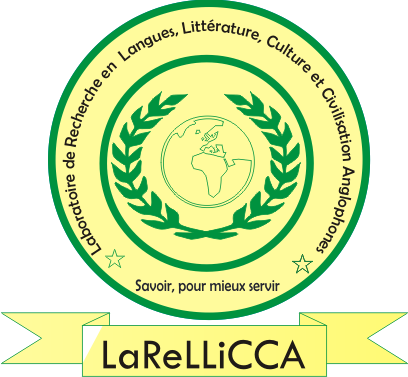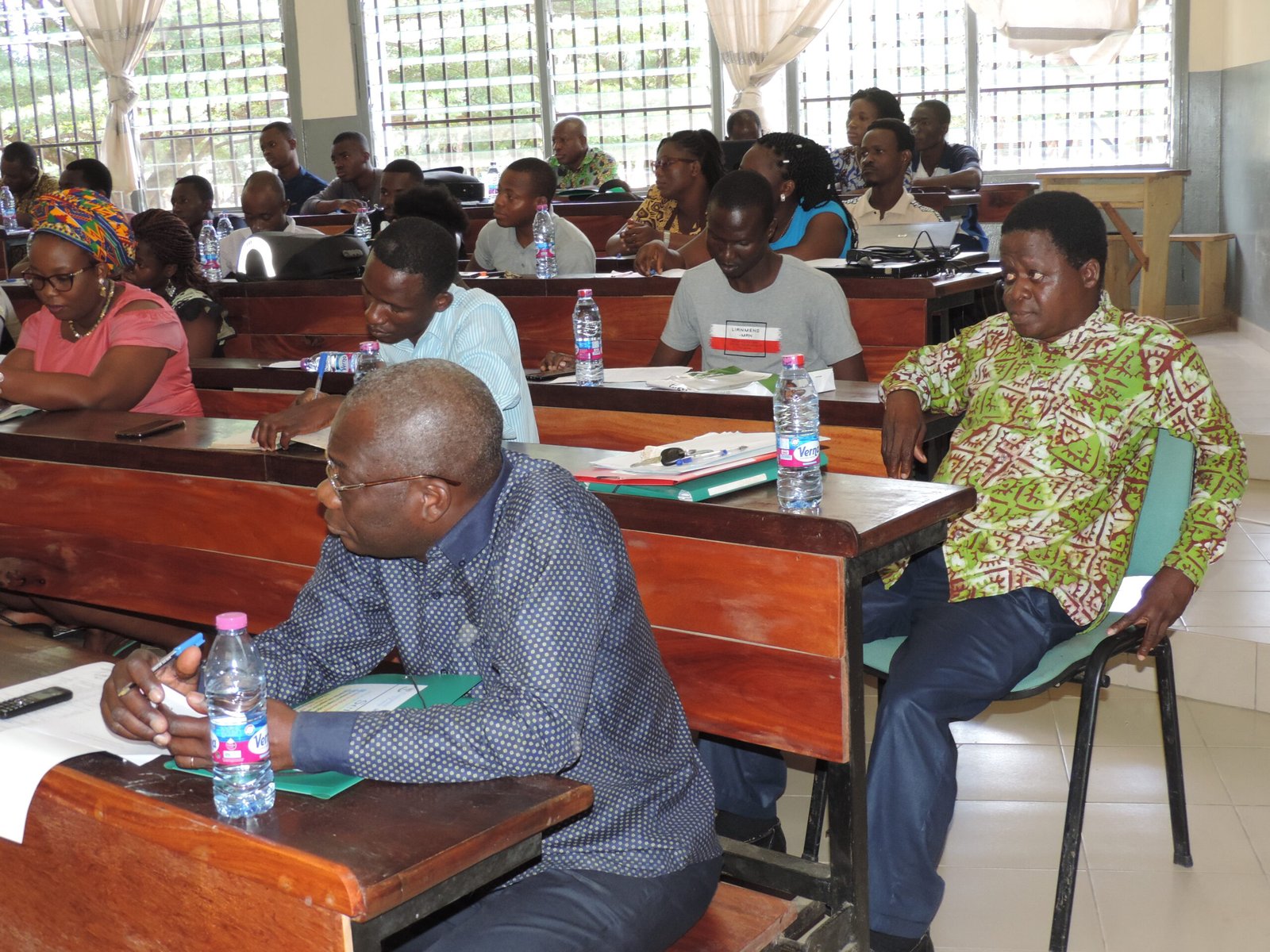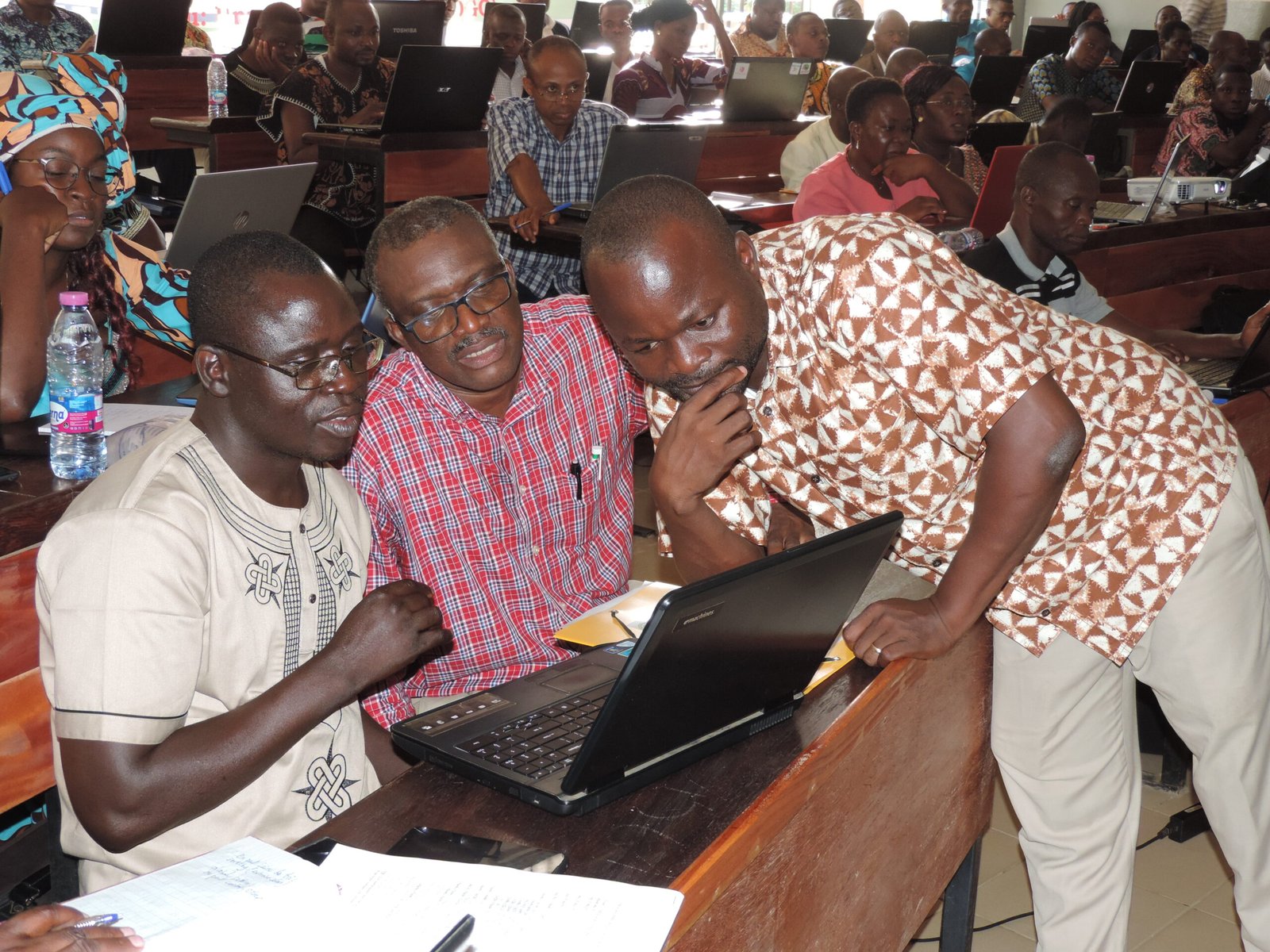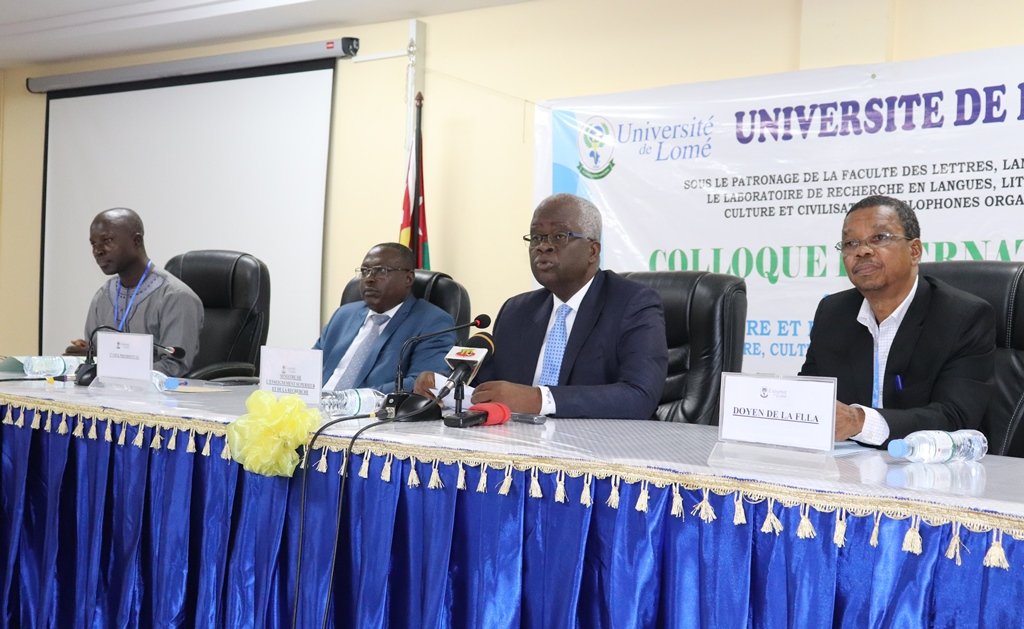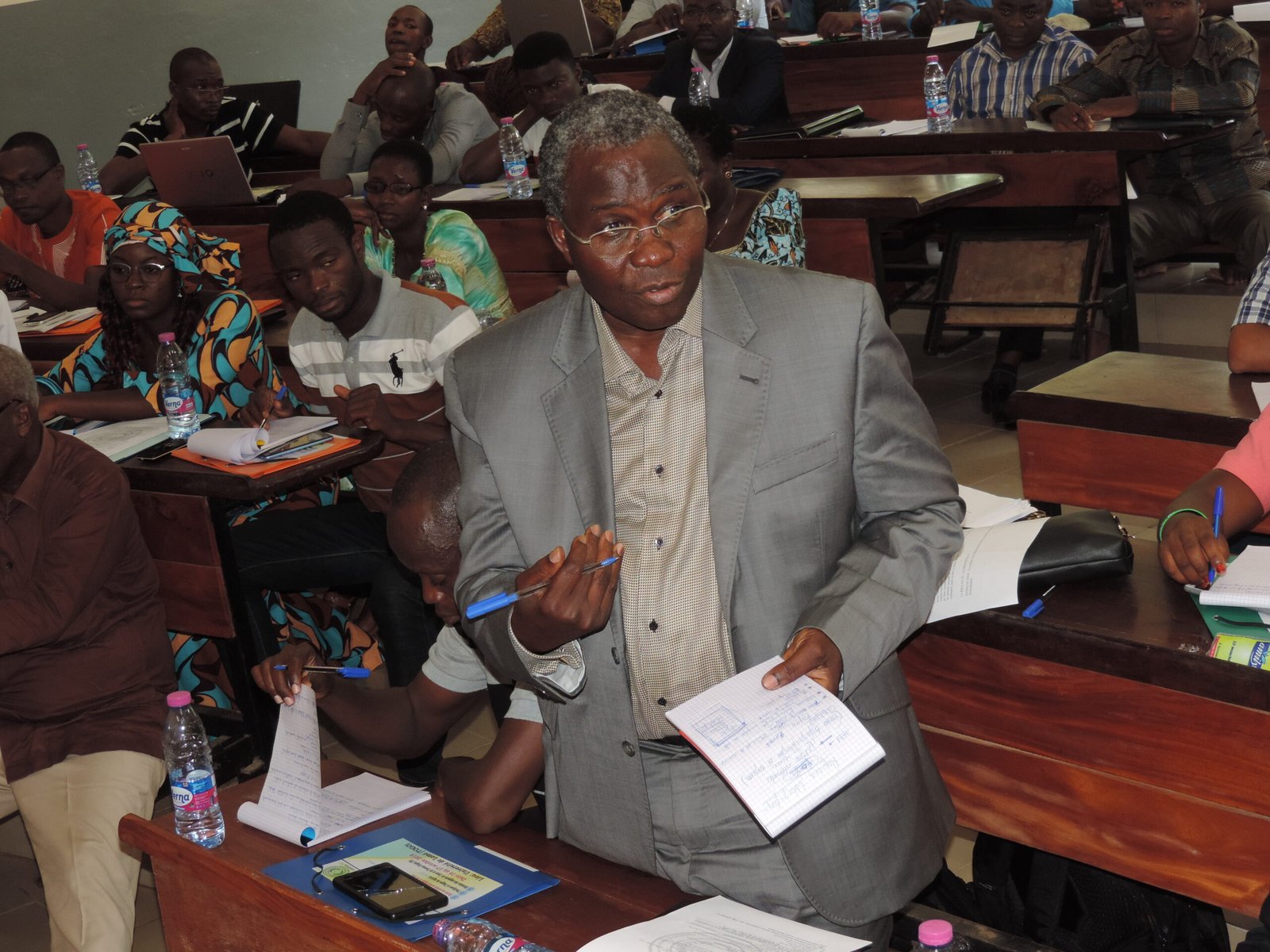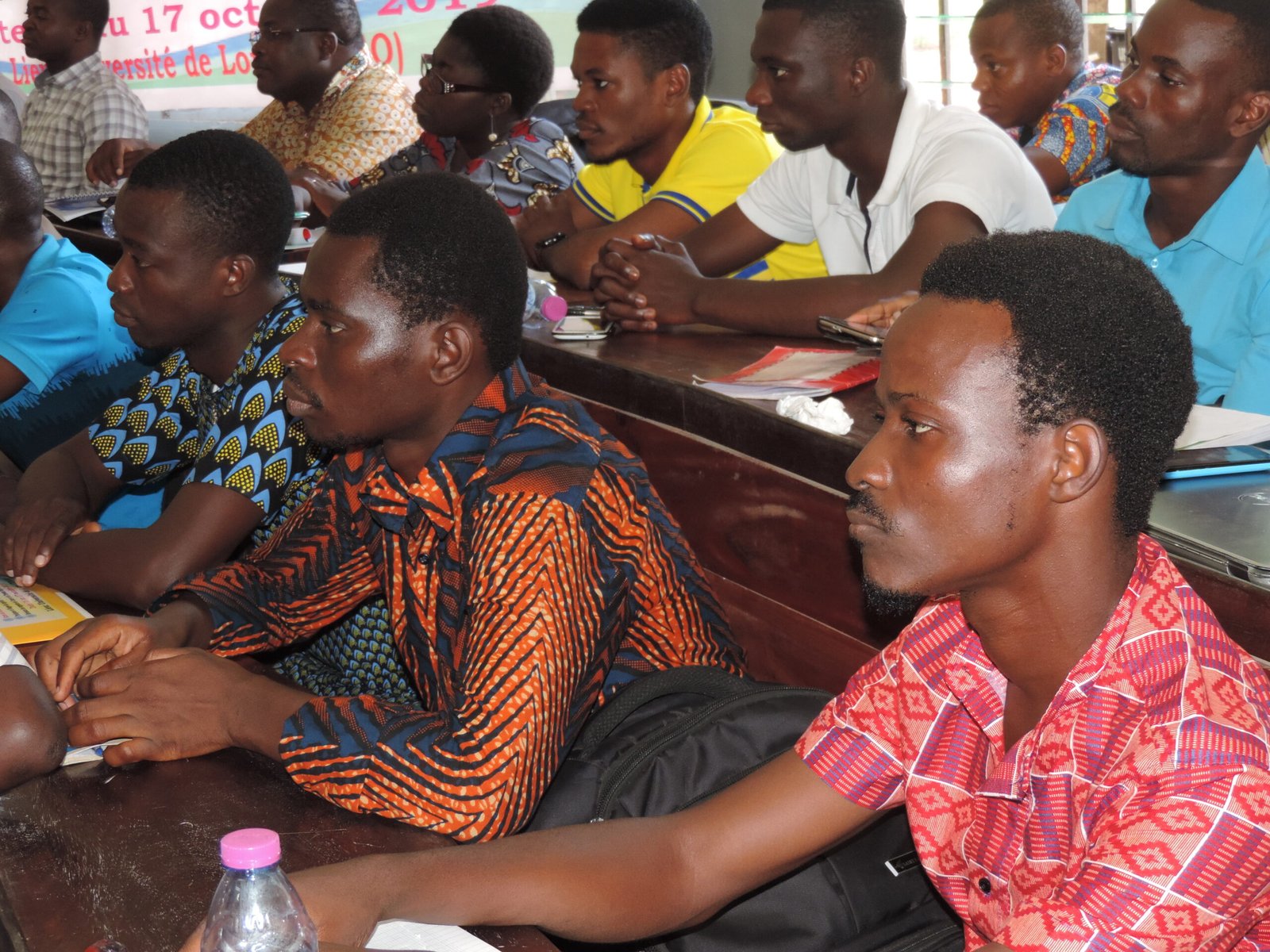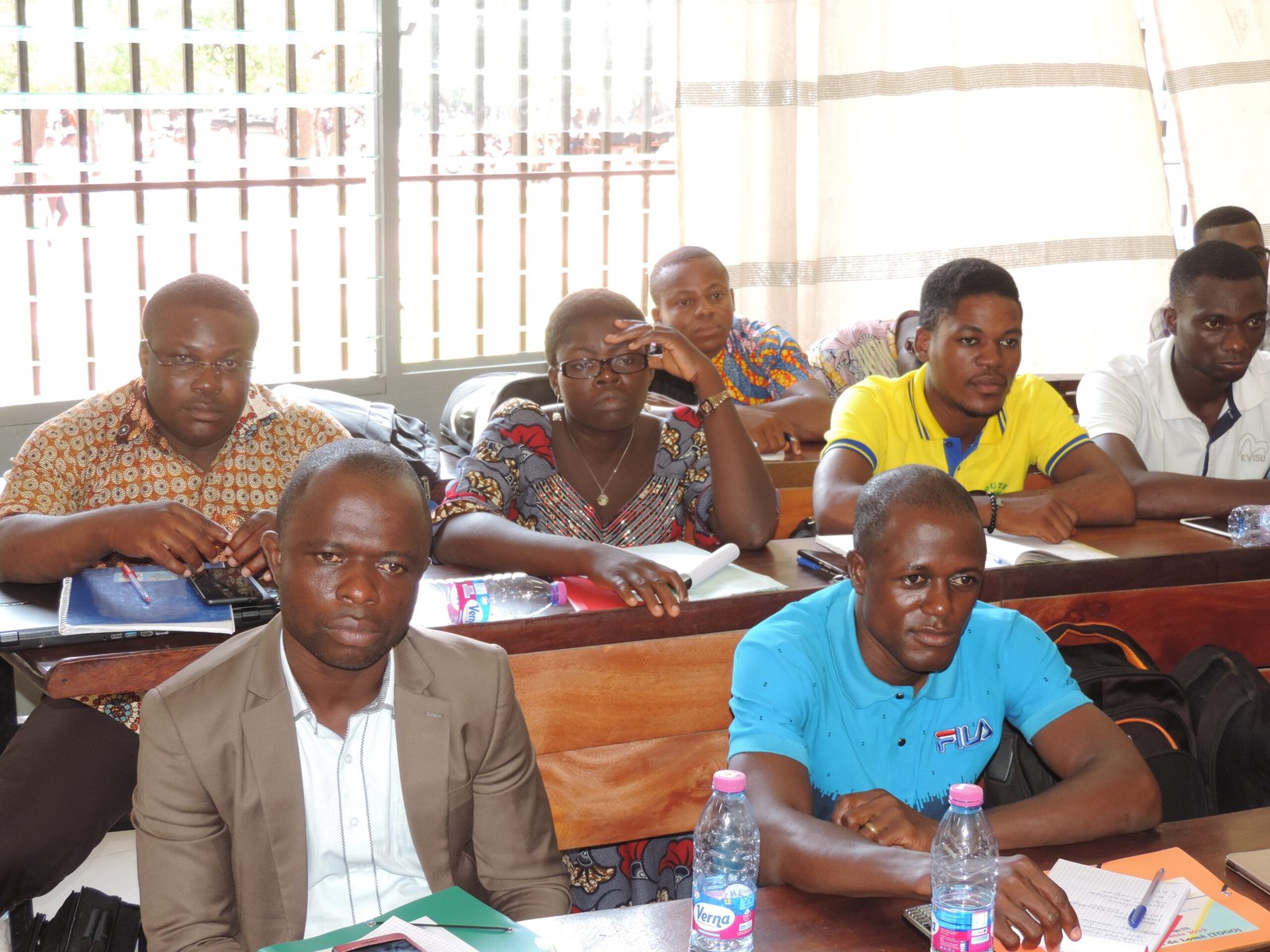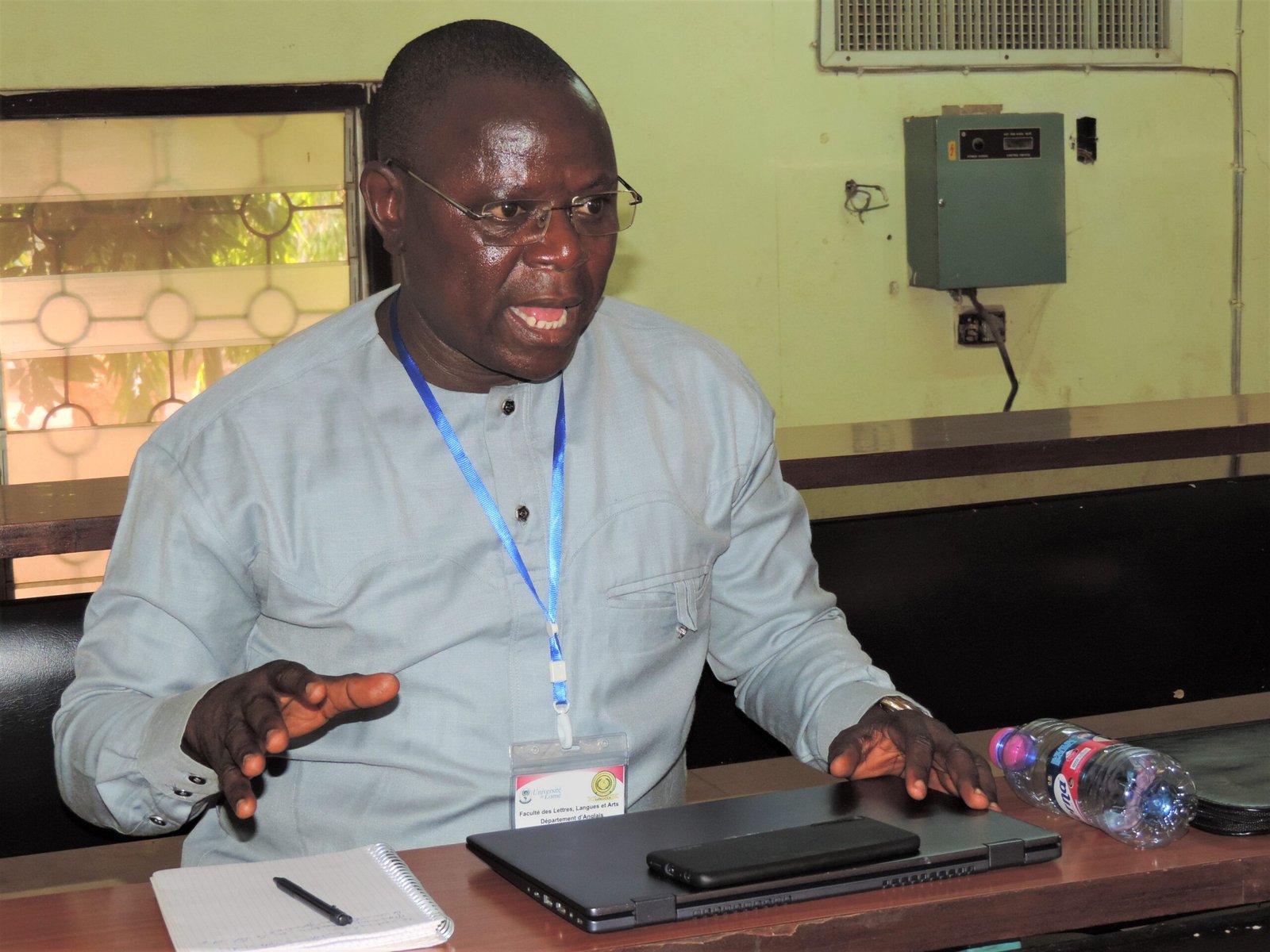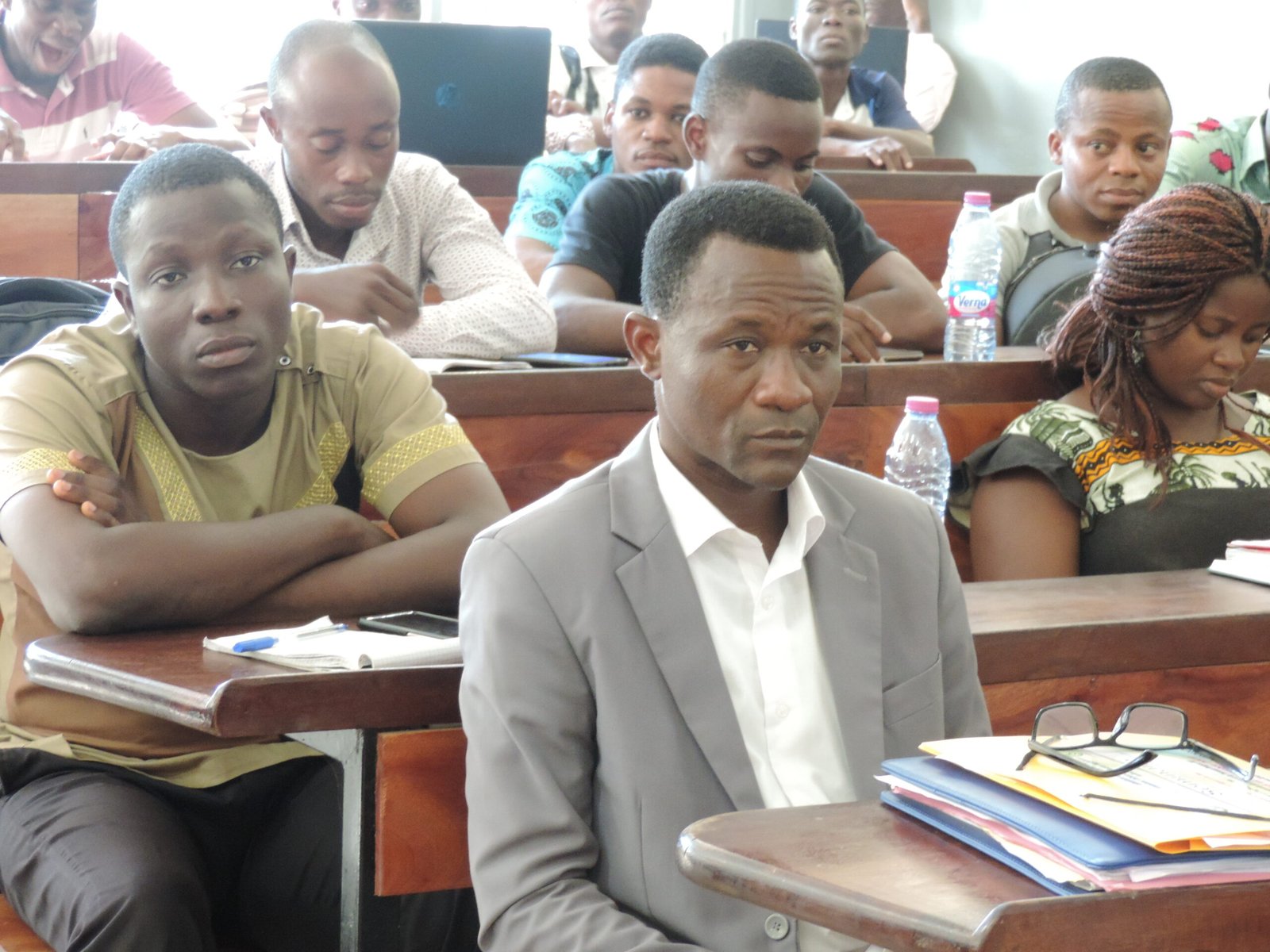ISSUE N° 1
Article 1: La paix dans la dynamique socioculturelle africaine : justice créatrice, droits humains et harmonie sociale
Bilakani TONYEME
Faculté des Sciences de l’Homme et de la Société/INSE
Université de Lomé
tonyemetheophile@gmail.com
Abstract:
This contribution aims to show that in the current context of African stato-legal modernity, a modernity marked by the socio-cultural realities of this continent, a reflection on peace cannot do without the cultural elements of organization and maintenance of social harmony. Indeed, traditional African societies have their own social mechanisms for building and maintaining peace. These mechanisms based on law, justice and human rights taken from the socio-cultural dynamics of these societies have been undermined by the advent of the Western state which has scrapped them. But the persistence and even the resurgence of conflicts on the continent make it clear that the so-called modern state has failed to maintain peace in Africa. It is therefore important to use the socio-cultural mechanisms of African traditions for the construction of a peaceful society on the continent. The community organization and management of these societies and the virtues of listening and dialogue should be elements that African States can borrow from African traditions for peace in Africa.
Keywords: Peace, socio-cultural dynamics, creative justice, human
rights, social harmony, Africa.
Article 2: Justice that Heals: A Cross Reading of African Literature
Atafeï PEWISSI,
Université de Lomé,
sapewissi@gmail.com
&
Seli Yawavi AZASU,
Université de Lomé,
Maseli84@yahoo.fr
Abstract :
This study looks both at the pernicious way of conducting justice that harms human relations and its alternative that heals the stringent relations in society. It argues that justice is better rendered when it repairs the offence and heals both the offended and the offender. Through the lenses of postcolonial theory and active research of Parsons and Harding (2011) that dwells on values of repair and quality life for all, the study has found that positive justice stressed the importance of peaceful and qualitative life beyond any urge to appealing to or conducting justice.
Key words: Justice, peace, social life, creation, fiction, healing.
Article 3: Anti-Semitism and the Issue of Human Rights in Christopher Marlowe’s The Jew of Malta
Paméssou WALLA
Littérature anglaise
Université de Lomé, Togo
wallapamessou@yahoo.fr
Abstract:
This study aims at analyzing how the Jews are abused and denied their human rights as foreigners in Malta in Marlowe’s The Jew of Malta. The study highlights the effects of anti-Semitism in Renaissance England. From the perspective of the society, the study is meant to contribute to the sensitization of people for the preservation of human rights and the promotion of a peaceful living together. Through the implementation of Marxist approach based on class, racial discrimination and responsibility of individuals, the study has shown that anti-Semitism deprives Jews of their human rights and causes them a lot of hardships jeopardizing interactions with other people of the world.
Key Words: Maltese, Jews, anti-Semitism, human rights, peace
Article 4: Media and Peace Discourse in Philip Purser’s The Twentymen
Silué Ténéna MAMADOU
Université Alassane Ouattara
siluetenena@yahoo.com
Abstract:
Based on Althuser’s concept of Ideological State Apparatuses (ISA), this study analyses Purser’s The Twentymen to demonstrate how the BBC shapes and champions the dominant political ideology and discourse of Britain’s coalition government in post war era. Using chiefly the BBC’s investigation on political ideology, the argument is to show how the British media explore and communicate on the topic of coalition government in the search for peace and the country’s reconstruction.
Keywords: Coalition-government, conflict, Ideological State Apparatus,peace-discourse, repressive state apparatus, resistance
Article 5: “I Am my Brother’s Keeper”: A Quantum Physics Reading of James Baldwin’s “Sonny’s Blues”
Kodzo Kuma AHONDO
Littérature et américaine
Université de Lomé
lionkum12@gmail.com
Abstract:
Quantum physics is about subatomic realities and reveals that atoms are made of particles and waves with characteristics that make them communicate, even when separated. This study explores how Baldwin has represented indifference, separation, unity, and redemption of society through the story of two brothers in his “Sonny’s Blues” for the reader to take notice. Using the quantum physics approach, the study has found out that a brother’s endeavor to protect his junior brother is an allegoric medium for unity, security, justice, and sustainable peace contemporary society longs for.
Keywords : quantum physics, subatomic particle, acoustic energy,waves, unity.
Article 6: Ecocritical Reading of Justice in Kaine Agary’s Yellow Yellow
Atsou MENSAH
Université de Lomé
mensahatsou@yahoo.fr
Abstract:
This study aims at analyzing the literary articulations of Agary’s
deconstruction of social peace in Yellow Yellow through the denial of human responsibility to nature and landscape. The emphasis is put on the respect of human rights and justice in land exploitation in the novel.
Justice is hardly come by when personal interests are prioritized. This truncated form of justice leads to frustration and violence. Thus, social peace calls for responsibility, justice and respect of human rights. Ecocritical theory exposes the injustice done to characters in the exploitation of their land.
Key words: Justice, responsibility, human rights, peace.
Article 7: Implementing Mechanisms for Homogeneity in Post Crisis Society: The Case of Nigeria in Chinua Achebe’s There Was a Country
Fougnigué Madou YEO
Université Alassane Ouattara Bouaké
ymadou@ymail.com
Abstract:
This work suggests mechanisms for creating and maintaining sustainable peace in Nigeria where there is evidence that conflicts have seriously disrupted African societies and impeded Africa’s development. From a
postcolonial approach, the analysis shows that there exist ways to settle conflicts so as to live in a multicultural society. The study highlights the
undertaken and implemented attempts to secure peace during and after the conflict in Africa.
Keywords: sustainable peace-crisis-mechanisms-multicultural-justice
Article 8: La partialité des institutions judiciaires comme entrave à la paix sociale : une lecture de la nouvelle Michael Kohlhaas d´Heinrich von
Kleist
Boaméman DOUTI
Université de Lomé
doutthimo@yahoo.fr
Abstract :
This study shows that the bias of judicial institutions that always
pronounce the law in favour of the strongest makes the model citizen,over time, a ruthless murderer, putting the whole country to fire and brim.
Drawing on sociocriticism, a social hermeneutic of a literary text, thestudy points out that justice is the foundation of peace and that young democracies have a duty to ensure fairness justice for all citizens in the name of sustainable peace and prosperity.
Keywords: Literature, Peace, Justice, Living Together, Democracy.
Article 9: El Síndrome de la Inmoralidad en El Huerto De Mi Amada de Alfredo Bryce Echenique
Weinpanga Aboudoulaye ANDOU
Universite de Lomé
andouaboudou@yahoo.fr
Abstract:
This study aims to analyze the derision of ethical values, which question social peace in El huerto de mi amada by Alfredo Bryce Echenique, through the use of literary semiotics and psychoanalysis. The study has shown that pedophilia, corruption and bribery, the brutality of machismo, prejudices are social vices that the represented Peruvian society must fight to restore justice, peace and social cohesion. The study has also indicated that jealousy, anger and hatred of others, are factors of dehumanization whether at a nuclear family level, national level or beyond.
Keywords: Syndromes, immorality, passion, disappointment, peace.
Article 10: La phénoménologie de la paix : guerre, droit et éthique
Aklesso ADJI
Département de Philosophie
Université de Lomé
aklessoadji@yahoo.fr
Abstract:
This study aims to highlight the ontological essence of war, law and peace. The study suggests means (of law) that can produce a universal dimension of peace. Basing on theoreticians of war, philosophers on the themes of peace and those of law asa well as traditional African and Boudhists principles, the study has found that for sustainable peace to take place, humanity needed to act as a traditionnal African or en Boddhisattva orientalist pristess by learning how to share the suffrerings of the other.
Keywords: Peace and War, African Ethics, Buddhist Ethics,
Phenomenology, Wisdom, Education, living together.
Article 11: Politique de tolérance et d’intransigeance en république chez Maurizio Viroli
Dègbédji Gad Abel DIDEH
Département de philosophie
Université d’Abomey-Calavi (UAC)-Bénin.
Email : didehabel@hotmail.com
Abstract:
To promote peace in contemporary republics is the philosophy of tolerance and forgiveness preferable to intransigence riveted on responsibility? This research argues that building lasting peace requires legal steadfastness, not meekness. Thus, it relied on the philosophy of neomachiavellian Maurizio Viroli to establish that intransigence makes truly citizen and strengthens socio-political stability while gentleness softens the republic. The qualitative method served as a heuristic base for achieving the objectives of this research.
Keywords: Peace, tolerance, intransigence, law, responsibility.
Article 12: Conception du pouvoir et de la bonne gouvernance dans la symbolique des quatre tresses de Soundjata Keita
Afou DEMBÉLÉ
Université des Lettres et des Sciences Humaines de Bamako
afoudem@gmail.com
Abstract:
This study sheds light on the perception of power and good governance in the African context of Malian origin. The study finds that the Mandenkas, very attached to their culture and traditions, have developed various means and techniques for education, training and the transmission of their knowledge. Among these means are braids. The analysis of the corpus from a Marxist perspective allows us to conclude that Soundjata Kéita’s braids have the merit of being an incredible tool for communication and socialization for the individual himself and for the society of which he is a member because it gives off a philosophical, political, socio-cultural and valuing perception of the human being without discrimination.
Keywords: codes, governance, power, traditional knowledge, braid.
Article 13: La paix selon le Général Gnassingbé Eyadema : évocation et contenu (1967-1990)
Agnélé LASSEY
Faculté des Sciences de l’Homme et de la Société,
Histoire et Archéologie,
Université de Lomé,
lasseyagnele@yahoo.fr
Abstract:
The objective of this study is to show that despite the many challenges to which they were the object, the military governments had a policy primarily based on peace. The study finds that on several occasions, the military intervened in political life, believing that the political game seriously threatened national unity, and therefore hampered peace in Togo. The documentary approach that we used allowed us to conclude that General Gnassingbé Eyadema contextualized this concept by linking it to the specific problems of Togo and it is this reality which determined the way in which he evoked it. In addition, the content it gave in terms of political action.
Keywords: peace, Eyadema, Togo, political life, national unity.
Article 14: Atouts linguistiques pour la promotion de la paix et des droits de l’homme
Assolissim HALOUBIYOU
Université de Kara (Togo)
dhaloubiyou@gmail.com
Abstract:
This study aims at highlighting the contribution of language to the promotion of peace and respect for human rights. The work is based on some theoretical benchmarks in the various definitions of language to identify the resources it offers to this end. The study concludes that peace, as a sacred right of peoples, must be sought and promoted, since it conditions socio-economic development and respect for the other human rights. In this perspective, language provides essential resources for knowing and accepting the other person.
Key words: language, peace, human rights, linguistic assets, Kabɩyɛ
Article 15: Language Teaching and Peace: A Case Study of English Teaching in a Junior High School
Maintoukéwé BITADI
Université de Lomé
bitadimaintoukewe@gmail.com
Abstract:
This study highlights peace in English language teaching in junior high school. It explores the pedagogy and discusses hidden aspects of peace displayed throughout the teaching and learning situations. As a result, classroom observation and qualitative data have been collected and analyzed within the systemic functional linguistic theory. The results show that peace is conveyed throughout the learning documents and in every single action performed during English class activities.
Keywords: peace, language, English, teaching, pedagogy.
Article 16: Speech Act Analysis of Political Discourses: Case Study of Presidents Kagame’s and Weah’s Inaugural Speeches
Servais Dieu-Donné Yédia DADJO
Faculty of Letters, Languages, Arts and Communications
Department of English
Université d’Abomey-Calavi
dadservais@gmail.com
Abstract:
Drawing on Austin’s (1962) Speech Act Theory, this paper investigates Presidents Kagame’s and Weah’s Inaugural Speeches for the purpose of decoding peace-related meanings. The scrutiny of the speeches has revealed that genocide and civil war have caused the death of thousands and thousands civilians. Besides, the predominance of assertive acts in President Weah’s speech has marked both his attachment to democracy and peace and his gratitude and gratefulness to Liberians who long for peace. In President Kagame’s context, the study has shown that assertive
acts reveal the president’s capacity to work for the development of Rwanda and his desire to collaborate with other African leaders.
Keys words: Assertive Acts, Expressive Acts, Illocutionary Acts, Speech
Acts
